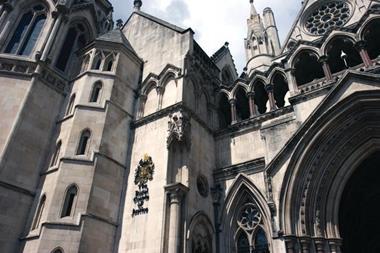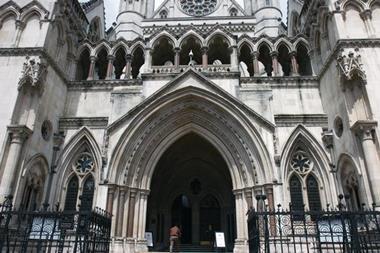A corporate accountability group is urging courts to impose heavier fines for death related health and safety offences
The majority of large companies convicted of health and safety offences involving a death of a worker or member of the public are fined at a level which is less than one 700th of their annual turnover.
The research also shows that the fines imposed on most of these companies was only 1% of their gross profits.
The research, undertaken by the Centre for Corporate Accountability (CCA) looked at the companies convicted for 'death-related' health and safety offences since January 1 2006 - and compared the fines imposed with the convicted companies' turnover and gross profits.
The report is being published at the same time as the Sentencing Advisory Panel (SAP) is drafting new guidance for courts on sentencing companies and other organisations convicted of health and safety and manslaughter offences.
“The fines that the courts currently impose upon companies for the most serious health and safety offences are so low as to be almost irrelevant to these companies.
David Bergman, executive director of the CAA
The CCA is urging the SAP to provide guidance that will allow the courts to fine companies convicted of 'death-related' health and safety offences between 2.5 and 10% of the company's turnover and for the new corporate manslaughter offence of between 15 and 40% of the company's turnover.
David Bergman, executive director of the CCA said: ‘The fines that the courts currently impose upon companies for the most serious health and safety offences are so low as to be almost irrelevant to these companies. A key purpose of these prosecutions is deterrence - yet fines which are the equivalent of £35 for the average person simply have no impact upon a company's wealth.’
‘Companies can be fined up to 10% of their turnover for breaching competition law - and this is when the company has not even been convicted of a criminal offence, and no person injury yet along death is involved.'
He added: 'Courts which have convicted companies of manslaughter, the most serious offence that companies can commit, must be able to fine them a much more significant amount. The threat of fines of between 15 to 40% of turnover is the kind of punishment appropriate to the seriousness of the offence and will create a real deterrent effect against companies needlessly placing the lives of workers and members of the public at risk.’




















No comments yet